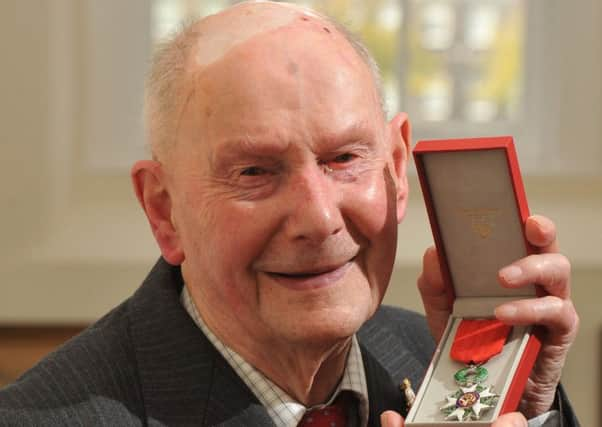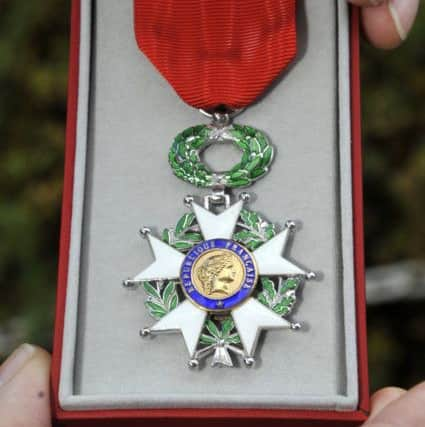Proud Bob, 95, gets military honour


But the French disagree.
And yesterday, more than 70 years after the Normandy Landings, the nation rewarded modest hero Bob with its highest military decoration - the Legion D’Honneur.
The 95-year-old, who served with the Pioneer Corps, was presented with the medal in a special ceremony at Fulwood Barracks in Preston.


Advertisement
Hide AdAdvertisement
Hide Ad“I’m deeply moved by this award,” said the retired hospital porter.
“I’d like to thank the French President and the people of France for the medal they’ve given me.”
Widower Bob, who lives in Park View Avenue, Ashton, Preston, admits he always knew the risks he and his comrades took were deeply appreciated by the French people. But he dismisses the part he played as just “a small role in a very large team effort.”
Bob, born in Sollom near Tarleton, was called up in 1942, initially into the Royal Artillery, but later transferring to the Pioneer Corps. He was specially trained to assist the Royal Engineers with the construction of Bailey bridges, pontoon bridges and other equipment designed to either move or breach obstructions left by the retreating German Army.


Advertisement
Hide AdAdvertisement
Hide AdBut his D-Day experience did not begin well - he suffered a severe dose of sea sickness as the invasion force crossed the Channel in atrocious weather.
His regiment’s landing at Gold Beach near the village of Arromanches was delayed by the choppy conditions and one of his clear memories was being anchored next to the battleship HMS Rodney whose huge guns fired deafening salvos at German positions throughout the day.
Relief at finally getting onto dry land was tempered by scenes of the battle on the beaches.
“One of our first tasks was to assist the Royal Engineers in the construction of an emergency airfield between the towns of Tilley and Bayeux,” he recalled.
Advertisement
Hide AdAdvertisement
Hide Ad“While assembling building materials locally we were being motar bombed by the Germans.
“Night-time was particularly dangerous because the Germans could use their artillery after dark without being attacked by the RAF.
“So we had to dig in on a nightly basis.”
One of Bob’s good friends, from Southport, was killed in a mortar attack.
“Other serious dangers included booby traps on installations we had to work on,” he said. “Two of our coporals were killed in one such incident.”
Advertisement
Hide AdAdvertisement
Hide AdBob remembers the “intense relief and gratitude” of the civilian population of northern France, Belgium and Holland as they liberated villages and towns from German occupation during their advance towards Germany.
“I know I was lucky to survive the conflict without injury and I always remember, every day, my comrades and fiends who weren’t do lucky.
“I realise how fortunate I’ve been over the last 70 years to see Europe grow out of that terrible conflict in freedom and peace.”